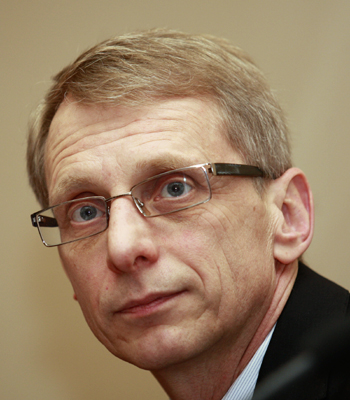The current system of financing of universities, where money is allocated according to the number of students, has proved to be a rotten apple in Bulgaria’s higher education. This is the conclusion of the Ministry of Education. Currently, universities are focused more on attracting a larger number of students than on pursuing the real goal – high-quality education, says Professor Nikolay Denkov, Deputy Minister of Education. For this reason, one of the major changes in the Higher Education Act provides for the linking of funding with quality and results and by 2020 this financing should constitute 60% of the total funding.
 "What we want to do is financing to be much better linked with particular results,” says Professor Denkov. “When we talk about subsidies we are to focus on quality and the professional realisation of students. When we talk about research funding, then we should link financing to the actual scientific results. In some countries the funds for science are linked directly to results and number of articles seen in international scientific databases. We want to find a little more flexible approach related to the criteria for achievements."
"What we want to do is financing to be much better linked with particular results,” says Professor Denkov. “When we talk about subsidies we are to focus on quality and the professional realisation of students. When we talk about research funding, then we should link financing to the actual scientific results. In some countries the funds for science are linked directly to results and number of articles seen in international scientific databases. We want to find a little more flexible approach related to the criteria for achievements."
Currently, the ministry is developing a methodology for assessing the achievements of scientific organizations, including universities. It will become part of the system of financing of the higher education. The planned changes in legislation provide for separating higher education institutions into two categories – one focused on research and one focused on education. Currently about 10 institutes are active in research work and some 15-20 more could also start being more active in this direction, says Prof. Denkov. This group will receive additional funding from both the state budget and European programs. However, he admits that scientific research work in higher education institutions suffers from lack of financing.
"When financing is clearly linked to research activities, universities will rethink their role. They can attract additional funding, which is part of the Strategy for Higher Education. Lecturers could receive higher salaries for their research work which would also increase motivation.”
The Bulgarian Ministry of Labor and Social Policy, together with the Ministry of Economy and employers' organizations should prepare a reliable forecast about the market needs. Priority for the business is universities producing more engineers and ICT specialists, for which the state will allocate more funds. More money will be also spent for majors that do not attract great interest but are important for the state, like pedagogy, for example. "About 50% of teachers in the next ten years will be in retirement age. Even now the state must be very active to face this challenge." Arab and Asian studies will be among the protected majors.
Currently, over 240 thousand students are being taught in public and private universities. Their number has nearly tripled in comparison to 1990. The good news is that unemployment among graduates is low - about 4-5%. The bad news is that over half of graduates have jobs that do not require higher education.
English: Alexander Markov
"You say you are Bulgarian, but you do not know Bulgarian" – this reproach from officials in Bulgaria has been faced by quite a few by our compatriots from the historical Bulgarian communities around the world. One of them is Bledar Alterziu from..
The survival of millions of people around the world, living in conditions of war, hunger, disease and immense despair, is at stake every day. We often approach immigrants from such countries with hostility rather than understanding. What they have..
Modernizing critical thinking skills, fact-checking skills and media literacy are essential for society, especially for young people in Bulgaria - the country with one of the lowest media literacy indices in the EU, reports the educational platform..

+359 2 9336 661
